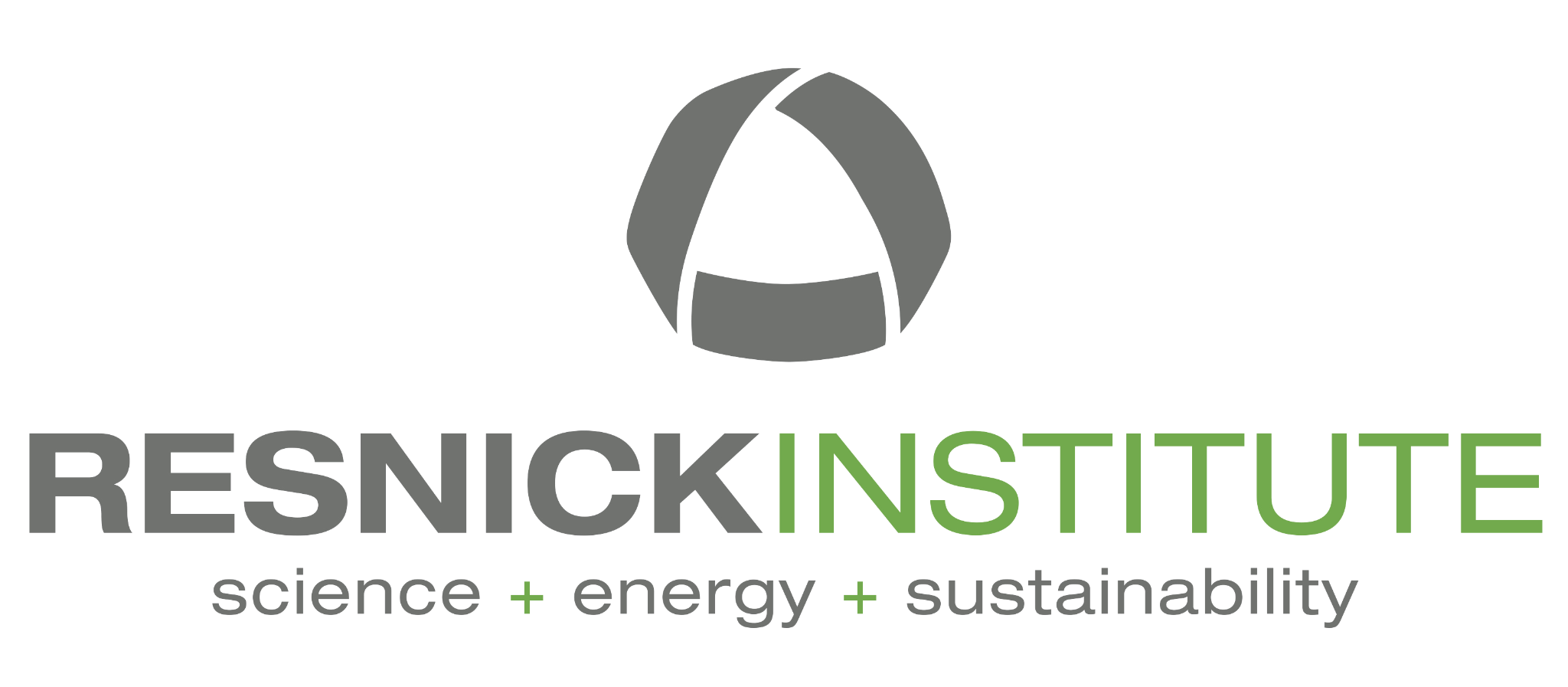2023 NeurIPS Workshop on Computational Sustainability: Pitfalls and Promises from Theory to Deployment
8:45am - 5:00pm, Friday December 15th, New Orleans, Louisiana
Schedule and Accepted Papers
Follow us on social media for updates during NeurIPS!
Computational sustainability (CompSust) is an interdisciplinary research area that uses computational methods to help address the 17 United Nations Sustainable Development Goals (UN SDGs), including but not limited to hunger and poverty reduction, infrastructure development, and environmental conservation. Computational sustainability is a two-way street: sustainability domains benefit from computational tools and methods and computational research areas benefit from the unique challenges that arise in attempting to address sustainability problems, including noisy and biased data, complex multi-agent systems, and multi-objective problems. Previous computational sustainability problems have led to new approaches in computer vision, reinforcement learning, multi-agent systems, and decision-focused learning. While computational sustainability problems span many domains, they share common challenges.
The Computational Sustainability Workshop @ NeurIPS 2023 (CompSust 2023) focuses on computational methods for balancing environmental, economic, and societal needs for a sustainable future. The theme of this workshop is “Promises and Pitfalls from Theory to Deployment.” This workshop will bring the community together to focus on two topics:
- The path from theory to deployment: While a goal of computational sustainability is to achieve broader impacts, many challenges arise on the path from theory to deployment. This workshop will help researchers navigate this path by bringing together participants and speakers from academia, industry, and non-profits, highlighting successes going from theory to deployment, and facilitating collaboration.
- Promises and pitfalls: Advances on ML benchmarks do not always translate to improvements in computational sustainability problems, with contributing factors including low-signal-to-noise ratios, ever changing conditions, and biased or imbalanced data. However, due to the difficulties of publishing negative results, these findings rarely reach the community leading to duplicated effort and obscuring important gaps in existing methods.
The goals of this workshop are to (i) identify pathways from theory to deployment, including best-practices and measures to quantify success, (ii) facilitate discussion and collaboration between participants with diverse backgrounds, including academia, industry, and the non-profit sector, and (iii) identify common failure modes and high-impact research directions, including “moonshot’’ challenges.
Speakers
 |
David RolnickMcGill, MILA AI-for-climate: A call for impact-guided innovationAbstract: Machine learning is increasingly being used to help tackle climate change, from optimizing electrical grids to emulating climate models and monitoring biodiversity. As such applications grow, however, it is becoming clear that high-powered ML tools often fall short. Methods designed using standard benchmarks may fail to capture the constraints or metrics of real-world problems, while a “one size fits all” approach ignores useful auxiliary information in specific applications. In this talk, we show how problem-centered design can lead to ML algorithms that are both methodologically innovative and highly impactful in the fight against climate change. Bio: David Rolnick is Assistant Professor and Canada CIFAR AI Chair in the School of Computer Science at McGill University and at Mila Quebec AI Institute, where his work focuses on applications of machine learning to help address climate change. He is a Co-founder and Chair of Climate Change AI and Scientific Co-director of Sustainability in the Digital Age. Dr. Rolnick received his Ph.D. in Applied Mathematics from MIT. He is a former NSF Mathematical Sciences Postdoctoral Research Fellow, NSF Graduate Research Fellow, and Fulbright Scholar, and was named to the MIT Technology Review's 2021 list of "35 Innovators Under 35." |
 |
David DaoETH Zurich, GainForest Rewarding The Wild: Collaborative Machine Learning for the Natural WorldAbstract: Nature has been deteriorating at rates unparalleled in human history and the implications are global. Unfortunately, we cannot value what we cannot measure. And we are failing to capture nature’s full contributions to society. In this talk, we argue that machine learning (ML) and specifically paying for forest data can play a significant role in responding to this critical call for action – but only when we develop collaborative algorithms and incentives in co-design with local and Indigenous communities that respect local ‘data’ realities. We will present our work at Gainforest, a global science-based non-profit and currently a Finalist of the $10M XPRIZE Rainforest, and how Gainforest is deploying real-world data payments on the ground in partnership with governments and conservation partners in the Global South to empower affordable top-down and bottom-up monitoring. Bio: David Dao is the founder and executive director of GainForest, a global science-based non-profit and currently a Finalist of the $10M XPRIZE Rainforest. GainForest develops technology to tackle the climate and biodiversity crisis. Dr. Dao is also a researcher at ETH Zurich on AI for Nature & Climate. His doctoral dissertation advanced algorithms and applications for machine learning-based data valuation. He maintains awful-ai, Github's most starred collection on ethical use of AI, and is one of the co-authors of Tensorflow Models. Previously, Dr. Dao was an engineer in Silicon Valley and a research fellow at Berkeley AI Research (BAIR), Stanford University and at Broad Institute of MIT and Harvard. He is a Global Shaper at the World Economic Forum, a Core Member of Climate Change AI, a Climate Leader at Climate Reality Project, a Mentor at Creative Destruction Lab, and a United Nations delegate at COP (since COP23 Bonn). |
 |
Hannah KernerAbstract: Remote sensing satellites capture peta-scale, multi-modal data capturing our dynamic planet across space, time, and spectrum. This rich data source holds immense potential for addressing local and planetary-scale challenges including food insecurity, poverty, climate change, and ecosystem preservation. Fully realizing this potential will require a new paradigm of machine learning approaches capable of tackling the unique character of remote sensing data. Machine learning approaches must be flexible enough to make use of the multi-modal multi-fidelity satellite data, process meter-scale observations over planetary scales, and generalize to the challenging diversity of remote sensing tasks. In this talk, I will present examples of how we are developing machine learning approaches for planetary data processing including self-supervised transformers for remote sensing data. I will also demonstrate how treating ML research and deployment as a unified approach instead of siloed steps leads to research advances that result in immediate societal impact, highlighting examples of how we are partnering directly with stakeholders to deploy our innovations in areas of critical need across the globe. Bio: Hannah Kerner is an Assistant Professor in the School of Computing and Augmented Intelligence at Arizona State University. Her research focuses on developing machine learning systems for real-world data and use cases, including remote sensing and spatial datasets, fairness (particularly with respect to geographic bias), scientific discovery and exploration, agriculture and food security, and other topics. She is the AI/Machine Learning Lead for NASA Harvest and NASA Acres as well as Center Faculty for the ASU Center for Global Discovery and Conservation Science (GDCS). Professor Kerner was recognized on the Forbes 30 Under 30 list in Science in 2021. Prior to joining the faculty at ASU, she was an Assistant Research Professor at the University of Maryland, College Park. She completed her Ph.D. at Arizona State University on machine learning methods (especially novelty detection) for planetary exploration missions. |
 |
Sara BeeryMIT Lessons learned in deploying CV for ecologyAbstract: Good benchmark performance is the first step to impact, but is only a small piece of the complex system necessary to enable computer vision models to be deployed and trusted in sustainability and conservation applications – a system that requires human and computational infrastructure, iterative development, software support and maintenance, and continual quality control. I will speak about lessons learned in deployed computer vision systems for applications in ecology, discussing differences in what is needed for end users with unequal access to resources and expertise, different priorities and risks of failure, and different operational needs from real-time decision support to post-hoc analysis. Bio: Sara Beery is the Homer A. Burnell Career Development Assistant Professor at MIT EECS Faculty of AI and Decision Making and CSAIL, and she was previously a Visiting Researcher at Google working on Auto Arborist. Her research focuses on building computer vision methods that enable global-scale environmental and biodiversity monitoring across data modalities, tackling real-world challenges including strong spatiotemporal correlations that lead to domain shift, imperfect data quality, fine-grained categories, and long-tailed distributions. Professor Beery received her PhD in Computing and Mathematical Sciences at Caltech, advised by Pietro Perona, where she received the Amori Doctoral Prize for my dissertation. Additionally, Professor Beery founded the successful AI for Conservation Slack community (with over 1000 members) and is the Biodiversity Community Lead for Climate Change AI. She is the founding director of the Summer Workshop on Computer Vision Methods for Ecology and works closely with Microsoft AI for Earth, Google Research, and Wildlife Insights where she helps turn her research into usable tools for the ecological community. |
Panelists
 |
Carla GomesCornell Bio: Carla Gomes is the Ronald C. and Antonia V. Nielsen Professor of Computing and Information Science, the director of the Institute for Computational Sustainability at Cornell University, and co-director of the Cornell University AI for Science Institute. Gomes received a Ph.D. in computer science in artificial intelligence from the University of Edinburgh. Her research area is Artificial Intelligence with a focus on large-scale constraint reasoning, optimization, and machine learning. Recently, Gomes has become deeply immersed in research on scientific discovery for a sustainable future and, more generally, in research in the field of Computational Sustainability. Gomes was the lead PI of two NSF Expeditions in Computing awards and has (co-)authored over 200 publications, which have appeared in venues spanning Nature, Science, and a variety of conferences and journals in AI and Computer Science, including five best paper awards. Gomes was named the “most influential Cornell professor” by a Merrill Presidential Scholar (2020). She was also the recipient of the Association for the Advancement of Artificial Intelligence (AAAI) Feigenbaum Prize (2021) for “high-impact contributions to the field of artificial intelligence, through innovations in constraint reasoning, optimization, the integration of reasoning and learning, and through founding the field of Computational Sustainability, with impactful applications in ecology, species conservation, environmental sustainability, and materials discovery for energy” and of the 2022 ACM/AAAI Allen Newell Award, for contributions bridging computer science and other disciplines. Gomes is a Fellow of the Association for the Advancement of Artificial Intelligence (AAAI), a Fellow of the Association for Computing Machinery (ACM), and a Fellow of the American Association for the Advancement of Science (AAAS). |
 |
Grant Van HornUMass, Cornell Lab of Ornithology Bio: Grant Van Horn is an Assistant Professor in the Manning College of Information and Computer Sciences at the University of Massachusetts, Amherst. He is also a visiting researcher at the Cornell Lab of Ornithology. His research lies at the intersection of computer vision and machine learning, with an emphasis on crafting real-world machine learning systems that integrate human expertise, state-of-the-art machine learning methodologies, and large-scale datasets. Merlin Sound ID is his latest contribution in this space, following the success of Seek, the iNaturalist computer vision system, and Merlin Photo ID. Professor Van Horn completed his PhD at Caltech in 2019, advised by Pietro Perona, where his thesis work focused on efficient dataset collection through human-in-the-loop systems, and fine-grained visual categorization. He completed his BS and MS at UCSD where he was advised by Serge Belongie. Most of his research work falls under the broad research agenda of Visipedia. |
 |
Emily AikenUC Berkeley Bio: Emily Aiken is a final year PhD candidate at the UC Berkeley School of Information. Her research interests are in machine learning and development economics, with a focus on analyzing large digital traces to inform social protection policy. Emily’s work on targeting social protection programs with machine learning, remote sensing, and digital data has been published in computer science conferences, economics journals, and Nature, and has informed the design of large cash transfer programs in Bangladesh and Togo. Emily is a rising star in data science, the recipient of a Microsoft Research PhD Fellowship, and a fellow at UC Berkeley’s Global Policy Lab. Before Berkeley, she received her BA in computer science from Harvard University. |
 |
Caleb RobinsonMicrosoft AI for Good Bio: Caleb is a Research Scientist in the Microsoft AI for Good Research Lab. He graduated from the Georgia Institute of Technology with a PhD in 2020 and his work focuses on tackling large scale problems at the intersection of remote sensing and machine learning/computer vision. At the AI for Good Lab he co-leads the Geospatial ML research group and is the lead researcher on the Global Renewables Watch, the rapid damage assessment, and global building density estimation teams. Caleb is interested in research topics that facilitate using remotely sensed imagery more effectively in conservation, sustainability, and damage response application. For example: self-supervised methods for training deep learning models with large amounts of unlabeled satellite imagery, human-in-the-loop methods for creating and validating modeled layers, and domain adaptation methods for developing models that can generalize over space and time. |
 |
Eric OrnsteinMBARI Bio: Eric Orenstein is a Senior Scientist of AI and Data Science at the UK National Oceanography Centre. His research lives at the intersection of machine learning, ocean imaging, and marine ecology. Eric spends a lot of time thinking about how to make the output from AI systems actionable for human or robotic decision making in the ocean. Eric received his PhD at UC San Diego for his work on developing automated classification approaches to process in situ plankton image data. After completing his degree, Eric did a postdoc in the Laboratoire d’Océanographie de Villefranche working to extract functional trait information from images of ocean organisms. Most recently, he was a Research Engineer at the Monterey Bay Aquarium Research Institute developing approaches for autonomous underwater vehicle behavior updates based on visual signals and serving as program co-lead of FathomNet, a large-scale database of marine imagery. |
Call for Papers
We invite submission of 4 pages (excluding references, submission anonymized) on topics related to deploying computational sustainability methods. Submission reviews will be double-blind. Supplementary appendices are allowed but will be read at the discretion of the reviewers. The purpose of this workshop is not specifically as a venue for publication so much as a place to gather together those in the community working on or interested in computational sustainability, particularly around deploying models in the wild. The workshop does not publish proceedings, and submissions are non-archival. Submission to this workshop does not preclude future publication. Submissions of work which has been previously published, including papers accepted to the main NeurIPS 2023 conference are allowed this year. We will also consider submissions where work on the same topic has been submitted to other NeurIPS workshops. However, submissions should not be identical.
While the goal of computational sustainability is to create positive impacts, the potential for broad social impacts makes it important to consider ethical concerns and potential unintended consequences, including but not limited to issues around security, bias, and fairness. We encourage participants to follow the NeurIPS code of ethics and include a statement of potential ethical considerations in their submission.
Papers should be submitted through OpenReview and use the workshop template based on the NeurIPS style file. The LaTeX version of the workshop template is available for download or as an Overleaf template. While we strongly encourage LaTeX submission, a Microsoft Word template is available upon request. A single PDF should be submitted with any supplementary material included in appendices after the main submission.
Papers accepted to the workshop will be allowed an extra page for a total of 5 pages for the camera-ready submission.
| Important dates | |
|---|---|
| Deadline for Submission: | October 3, 2023 |
| Notification of acceptance: | October 21, 2023 |
| Camera Ready Deadline: | November 15, 2023 |
| Workshop: | December 15, 2023 |
Collaborathon
Following in the tradition of previous CompSust DCs, our workshop will include a 90-minute “collaborathon", to facilitate collaboration and identify high-impact research directions. Focused discussion groups will be led by 5-10 volunteers, chosen from participants and members of the organizing team, to identify key challenges in specific sustainability domains, and each discussion group will be invited to give a short 5-minute pitch of their ideas at the end of the session. This structured networking and collaboration session has proven successful at previous CompSust DCs, where collaborathon ideas have later developed into paper and thesis topics.
Past Events
- CompSust-2022 Doctoral Consortium on Computational Sustainability, March 11–12, 2022, Virtual
- CompSust-2020 Doctoral Consortium on Computational Sustainability, October 17–18, 2020, Virtual
- CompSust-2019 Doctoral Consortium on Computational Sustainability, October 18–20, 2019, Carnegie Mellon University, Pittsburgh, PA
- CompSust-2018 Doctoral Consortium on Computational Sustainability, September 14–16, 2018, Cornell University, Ithaca, NY
- CompSust-2017 Doctoral Consortium on Computational Sustainability, July 13–14, 2017, University of Southern California, Los Angeles, CA
- CompSust-2016 Conference, July 6–8, 2016, Cornell University, Ithaca, NY, U.S.A.
- Conference on Conservation, Computation, & Criminology (C4) June 29–30, 2015, Washington DC, U.S.A.
- CompSust'12 Conference, July 4–6, 2012, Copenhagen, Denmark
- CompSust'10 Conference, June 28–30, 2010, Boston MA, U.S.A.
- CompSust09 Conference, June 8–11, Ithaca NY, U.S.A.
- Chris Yeh (California Institute of Technology)
- Suzanne Stathatos (California Institute of Technology)
- Chenlin Meng (Stanford University)
- Katelyn Morrison (Carnegie Mellon University)
- Laura Greenstreet (Cornell University)
- Tarun Sharma (California Institute of Technology)
- Yuanqi Du (Cornell University)
- Sherrie Wang (Massachusetts Institute of Technology)
- Fei Fang (Carnegie Mellon University)
- Pietro Perona (California Institute of Technology)
- Yoshua Bengio (Mila)
Thanks to CompSustNet, the Cornell Institute for Computational Sustainability (ICS), the National Science Foundation, and the Caltech Resnick Sustainability Institute (RSI) for sponsoring CompSust-2023.


